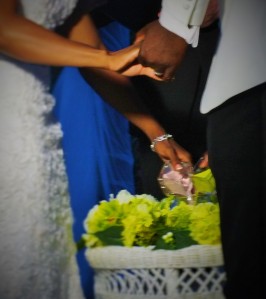You may have missed all of the hoopla about the fact that I received my book cover from the graphic designer this week, but I didn’t want you to miss anything else in this publication process. You are all my writer friends, so I can’t leave you out of the writerly aspects of getting this book baby out there. If you want to read my feels about the process, you can head on over to http://www.aseriousseason.com and see those. But today I want to talk about revising my non-fiction book.
My name is Erica Denise Hearns, and I am a perfectionist. I’ve been a perfectionist for years. I would quit for a while but sooner or later, the old each keeps coming back and I give in. It was bad at the beginning of this week when I tweaked almost every element of my book cover, but now that I’m reading the book after a couple weeks’ hiatus, it has become supercharged.
When I opened the Word document a few days ago, I thought I’d just be finishing the sections that weren’t finished. I was convinced that I’d done all the revision/editing I needed to do for what was written. I would go over the most recent additions, then move on to filling in the missing areas. Not so. I’ve notice some major things out of whack in the beginning. It makes me want to throw my laptop because I already gave the book to beta readers to look over. In the first four sections/chapters, I’ve moved one section up, one down, and extensively revised another. About 75% of what I read has been moved or changed. I’ve removed chunks of useless words, large and small. I’ve nipped, tucked and tightened all over the place. I feel like a plastic surgeon on Botched: this manuscript has been disfigured and now I have to fix it.
It’s not all bad, though. Other than one chapter that needed major revisions (the chapter that everything else flows from, so it has to be perfect), the rest has just been finding the flow and deleting unneccesary words. It’s like the hero’s comments about a run down house in a book I’m reading: the house has good bones; most of the work to be done is cosmetic. I’m adding subheadings and cleaning up copy in most sections. I’m checking and adding references. I’m adding quotes. I’m prettying up the place, so to speak.
How is revising non-fiction different from revising fiction? For me, I spot repetition and junk words a lot easier. I’m good at making sure the paragraphs are organized well and paragraphs are broken in the correct places. It’s easier to spot derivations and asides in my non-fiction voice. I have a better grasp on how to tweak my words to wring out the emotions.
On the more difficult side, I have to make sure that my tone is working well. It’s hard to know how someone will read something. I’m trying to season my words while being clear, which can be hard to balance when you’re taking a stance or position that may be unpopular. I have to check that everything I present as a fact is corroborated, and that I clearly state when something is an opinion. I have to balance how much information I am giving all at once and use things like enumeration, bullet points and subsections to break it up into manageable chunks. It’s like writing a really long college essay.
The hardest part about self-publishing this book, to me, remains the marketing. I think I creating a cover that will draw the eye. What else can I do to build interest in the book? What marketing tips do you guys have for non-fiction Christian books?

